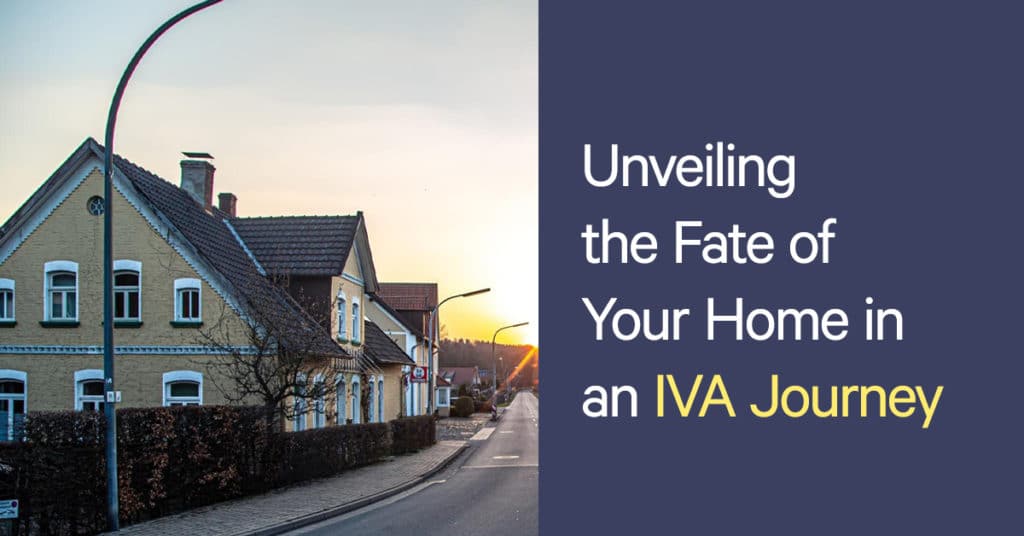Embarking on an Individual Voluntary Arrangement (IVA) can be daunting, especially when the future of one of your most valued assets—your home—is at stake. In the UK, where financial stability is paramount for many, understanding how your home fits into an IVA is crucial. This blog aims to demystify the process, providing clarity and reassurance for those navigating through the complexities of an IVA. By breaking down the details of how an IVA impacts homeownership, we aim to equip you with the knowledge to make informed decisions and confidently approach your IVA.
The Basics of an IVA
An IVA is a formal agreement between you and your creditors to pay off your debts over a set period, usually five years. It’s a viable bankruptcy alternative, offering a more flexible way to resolve financial difficulties while giving you the chance to keep your assets, including your home. However, the treatment of your home in an IVA is a subject of considerable concern for many. Let’s explore this in more detail.
Home in an IVA: What Happens?
The primary concern for homeowners entering an IVA is whether they’ll have to sell their home. The good news is that IVAs are designed to protect your home from a forced sale. However, this doesn’t mean your home is entirely off-limits to considerations related to your debts. Here are the key points to understand:
1. Equity and Your IVA
Equity – the value of your home minus any mortgage or other loans secured against it – is a crucial factor in your IVA. In the final year of your IVA, you’ll need to get a valuation of your home to determine its equity. If significant equity is available, you may need to remortgage to release some of this equity to pay into your IVA. However, safeguards are in place to ensure this process is fair and manageable.
2. Safeguards for Homeowners
- Remortgaging Restrictions: You won’t be forced into a remortgage with unaffordable repayments. If remortgaging would extend your mortgage term into retirement or significantly increase your payments, alternative arrangements can be made.
- Equity Release Cap: Generally, if the equity in your home is less than £5,000, you won’t be required to release any equity. This threshold provides a buffer for homeowners.
- Alternative Solutions: If you can’t remortgage, you may be able to extend your IVA for an additional 12 months instead of releasing equity from your home.
3. Protecting Your Home in an IVA
To ensure your home is protected throughout your IVA journey, it’s vital to:
- Communicate Openly with your Insolvency Practitioner (IP) about your circumstances.
- Adhere to the Terms of Your IVA: This includes making regular payments and complying with the assessment of your financial situation.
The Role of Insolvency Practitioners
Insolvency Practitioners (IPs) play a pivotal role in administering your IVA, guiding you through the details of your agreement to ensure you and your creditors stay compliant. IPs recognise the emotional and financial significance of your home and are committed to safeguarding your interests. Their expertise is key in balancing the delicate negotiations between debt resolution and asset retention, making sure the process is impartial for all parties. By leveraging their knowledge and experience, IPs facilitate a smoother journey through your IVA, addressing concerns and providing solutions that align with your financial recovery goals, making them invaluable allies in securing a positive outcome.
Keeping Your Home in an IVA
Keeping your home in an IVA is a priority for many. With the right advice and guidance, it’s possible to navigate through your IVA without losing your home. The key is to understand the terms of your IVA, the value of your home, and the options available to you. By actively engaging with your IP and making informed decisions, you can maintain ownership of your home while completing your IVA journey.
Moving Forward: Life After an IVA
Completing an IVA is a significant achievement that signifies the end of a challenging period and ushers in a brighter financial future. Though the journey may be fraught with issues, particularly concerning your home, the eventual outcome is a more stable and manageable financial situation. This successful completion reduces the immediate pressures of debt and lays the groundwork for long-term financial health, enabling you to plan for the future with greater confidence and security. It’s a transformative step towards regaining control over your finances and rebuilding your life with a solid foundation.
The Future of Your Home After an IVA
After completing your IVA, any remaining unsecured debts included in the arrangement are written off, allowing you to start fresh with your home intact and a clearer path ahead. This marks a pivotal moment and an opportunity to rebuild your financial stability without the burden of overwhelming debt. What’s more, this fresh start empowers you to re-establish your credit rating over time, creating a healthier financial future and providing peace of mind in your financial dealings.
Protecting Your Home and Finances in an IVA Journey
Navigating the fate of your home in an IVA can seem overwhelming, but with the correct guidance and support, it’s possible to emerge from the process with your home and finances intact. Understanding the role of equity, the safeguards in place, and the importance of working closely with your IP can make all the difference in your IVA journey.
Seek Support from an Expert
If you’re facing financial difficulties and are considering an IVA or currently in an IVA and have concerns about your home, our team is here to help. Our qualified, knowledgeable Insolvency Practitioners are authorised by the Institute of Chartered Accountants in England and Wales. We’re committed to providing free, impartial advice to ensure you navigate your IVA most cost-effectively, protecting your home and financial future. Don’t navigate this journey alone; contact us on the form, via our live chat, email us at mail@Simpleliquidation.co.uk, or call 0800 246 5895. Let’s work together to secure your future.




